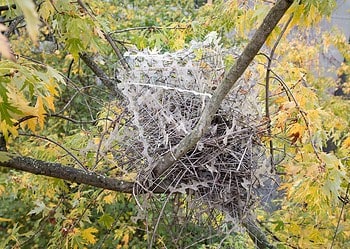A new study found that birds living in urban environments in Southwest Virginia will engage in more aggressive behavior to defend their territory than their country counterparts.
Seeing as my city’s streets are choke full of pigeons that look like they couldn’t seriously harm a morsel of bread, it comes a bit hard for me to put the words “city,” “bird,” and “aggressive” in the same sentence. But it seems that I’ve been deceived — a new Virginia Tech paper found that city birds viciously defend their territories, employing very aggressive behavior to scare off other birds.

Image credits Devra/Flickr
“A possible reason for this is that these birds have less space but better resources to defend,” said Scott Davies, a biological sciences postdoctoral associate in the College of Science. “Living near humans provides better food and shelter, but it also means more competition for these limited resources.”
The two man team, composed of Davies and assistant professor of biological sciences in the College of Science, spent the spring of 2015 measuring the territorial aggression of 35 urban and 38 rural male song sparrows at three rural and three urban sites in the New River Valley. Virginia Tech and Radford Uni campuses served as the urban sites, chosen for the high level of human interaction that animals here were assumed to have. Rural sites included Kentland Farm and Heritage Park.
Researchers played a recording of a male song sparrow at these locations and then observed the behavior of territory-holding birds to this simulated intrusion. Campus birds approached the speaker and remained near it, flapping their wings furiously, engaging in loud singing that later developed into “soft song” — a term that researchers use to describe the quiet, garbled noise that a bird makes before launching an attack. By contrast, rural birds still responded to the recording, but not as vigorously.
To make sure they weren’t testing the birds on their grumpyest, the researchers attached small leg bands on their legs to identify them. They checked each bird’s response twice, several weeks apart — suburban birds were more territorial on both occasions, suggesting that their aggressiveness persists throughout a breeding season.
The study gives us some insight into how cohabitation with humans affects wildlife – although many animals avoid habitats that are impacted by humans, some adjust and live in suburban, even urban habitats.
“This finding supports past research showing that urban birds are more aggressive in defending their territories,” said Kiki Sanford, a neurophysiologist who was not involved in the study.
“We need to understand widespread behavioral differences between various species of urban and rural bird populations to get an idea of how urbanization will affect their survival and diversity in the future. Testosterone and population density are the usual predictors for aggression, but there are other influential factors, like increased food availability in urban environments, that need to be examined.”
The full paper, titled “Agonistic urban birds: elevated territorial aggression of urban song sparrows is individually consistent within a breeding period” has been published in the journal Behavioral Ecology and can be read here.






